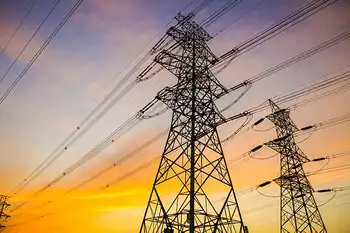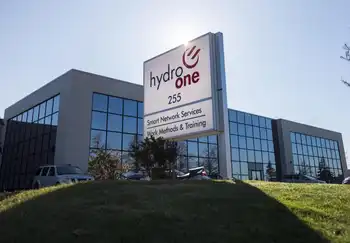Startup wires parking lot for electric cars
ISRAEL - Instead of filling up at the pump, soon Israeli motorists will be able to fill their cars up at the plug.
That's the idea behind the demonstration of the parking lot of the future, equipped with stations to charge the battery-powered cars scheduled to ply Israel's streets in 2011. Israel's government has endorsed the project, which aims to blanket the country with electric cars and plugs.
A similar project in Hawaii aims to have electric car stations open for the mass market by 2011.
The California-based company, Project Better Place, is building the infrastructure to switch Israeli drivers over to battery power. The group has built 400 wired parking spots, mainly in and around Tel Aviv, since it launched the initiative in June.
Demonstrating the first 10 stations in a Tel Aviv mall parking lot, organizers explained that drivers can charge their cars while shopping.
Charging stations are 3-foot-high pedestals with curly-cued cords attached. A triangular plug fits into a socket where a car's gas tank usually is.
Pini Leiberman, manager of infrastructure for Project Better Place, says the group hopes to wire 100,000 parking spots in Israel by 2010. The plugs will energize a fleet of electric cars being developed by the Renault-Nissan Alliance scheduled to hit the streets of Israel in 2011.
The car prototype was first demonstrated in May. Israel's government believes it's a way to reduce Israel's dependence on oil and reduce pollution.
However, there are concerns that the cars can drive only short distances before they need to be charged. Leiberman said wired parking lots like the one displayed can help solve the problem. He added that in 2010 there should be charging stations every 25 miles (40 kilometers).
Also, Leiberman said the company is developing battery changing stations, so drivers with no time to charge can trade drained batteries for charged ones.
Drivers who recharge at parking lots will pay by the mile. Computers will look at how much electricity the car needs and calculate the cost.
Leiberman said he did not know what the cost per mile would be, nor what the cars will cost, but pledged it would be lower than gasoline-operated cars.
That could be critical. Persuading Israeli car owners to trade their gas guzzlers for short-range vehicles could depend on whether the overall outlay is significantly lower, including the cost and effort of installing special plugs at their homes. There are also concerns about pollution from spent batteries and added drain on Israel's already sagging electricity grid.
Israel Corp., a local partner of Better Place, has invested $200 million in the project, the company said, to pay for the entire electric car infrastructure in Israel.
If Project Better Place's plan works, Israel would become the first country to have large numbers of electric cars on its streets. Test runs are set for next year.
The Danish energy company DONG Energy AS adopted a Better Place model in march, hoping to have electric cars running on power generated from wind turbines by 2011.
Hawaii and California were among the first states to sign onto the plan, the company said.
Related News

Electricity sales in the U.S. actually dropped over the past 7 years
NEW YORK - Since 2010, the United States has grown by 17 million people, and the gross domestic product (GDP) has increased by $3.6 trillion. Yet in that same time span, electricity sales in the United States actually declined by 3%, according to data released by the U.S. Department of Energy (DOE).
The U.S. decline in electricity sales is remarkable given that the U.S. population increased by 5.8% in that same time span. This means that per capita electricity use fell even more than that; indeed, the Department of Energy pegs residential electricity sales per capita as having declined by 7%.
There…




